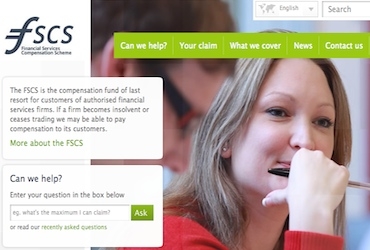People are increasingly confident they will get their money if a bank was to fail, according to new research for the Financial Services Compensation Scheme .
Some 66% of people surveyed said they would definitely or probably get their money back if a bank went bust.
Only 12% believe they would not get their money back in the event of their bank or building society going bust. 30% of those questioned definitely think they would get their money back, while a further 36% possibly think they would get their money back. 22% admit they do not know what would happen.
Along with people in Scotland, those in the North East, lead the way in awareness of compensation in the event of a bank running into difficulty. Some 73% of people in these two regions believe they will either definitely or possibly get their money back if their bank went bust.
The news comes in research for FSCS by GfK NOP on the fifth anniversary of the run on Northern Rock.
However, it also found a quarter of those aged over 16, equivalent to over 12.5 million people in the UK, said they would definitely try to immediately withdraw their money from their bank if it appeared to be in trouble.
And a further four in 10 would 'possibly' do so while 21 % said they would not try to withdraw their money.
Mark Neale, chief executive of the FSCS, said: "The run on Northern Rock and the bank failures of 2008 are still a vivid memory for many people. They showed just how important it is for consumers to be aware of the protection which is available to them. This is essential to consumer confidence.
"Time has not stood still and nor has FSCS. So there is no reason for a run on any deposit taker. Over the last five years there has been a significant improvement in FSCS protection for people's deposits. The limit is now £85,000 so the vast majority of people are covered. People can now see about FSCS protection in their branch and through their online banking. In the unlikely event of a bank or building society going bust, the vast majority of people would get their money back in seven days. With these measures in place, consumers can be sure that FSCS will protect their savings."
FSCS protects consumers if banks, building societies or credit unions go bust. Since 2001 it has helped more than 4.5 million people and paid out more than £26 billion. The financial services industry pays for FSCS through a compulsory levy.
The research was carried out by GfK NOP, who interviewed 1,000 individuals aged 16+ and residing in the UK between 20 and 22 August 2012. The interviews were conducted online via GfK NOP's online panel of over 200,000 internet users. GfK NOP Limited is a Company Partner of the Market Research Society (MRS).

